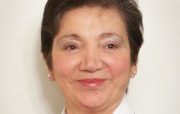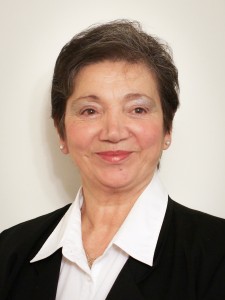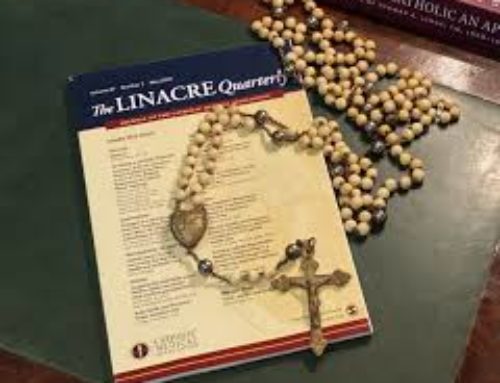Unmasking this Grief. Anne Lastman
Grief…such an unusual word to use for sexual abuse but that is the word most appropriate to cover the many losses. Yes there are the accepted understanding of pain and confusion but grief is not a word thought to apply to sexual abuse. This abuse is still not accepted as a grief “reason” and the thought appears to be still out in deciding whether it really exists or is simply something invented.
Unmasking grief, I thought, “how appropriate for this topic” because really it does need urgent “unmasking.” There is much suffering in this type of grief but it still remains masked. It’s not fair. It is real grief. A disenfranchised type of grief. A debilitating type of grief and a grief which no longer must be hidden. Sexual abuse grief.
I understand that it is a topic which is difficult to speak about. It’s a topic which, because of its dark nature, remains contentious but it must be talked about because as long as it is not talked about then children, men and women and families, continue to suffer and generally they suffer alone.
Grief and weeping “that ingrained response to loss” (Bowlby, 1965) which helps the human person to come to terms with loss, or even with a suffering, is usually not encouraged in the instance of abuse. The abused person is not understood as grieving losses and those in his or her life and society in general, decree that the abuse remain hidden and kept as a family “secret” only to be whispered about if necessary and not to be discussed in polite company and polite society.
Other wounds in society are recognised as carrying a grief component. Wounds and losses such as miscarriage, stillbirth, any death or even loss of career, there is support and comfort, and love through this time of sadness. For these mourners there are mechanisms in place, both within the family structure and societal structures which assist during these difficult times. But most importantly, family, friends and society acknowledge the pain felt and proceed down a path predetermined as appropriate for these circumstances. It is indeed expected that the grieving process be present and that it will proceed according to certain patterns. The work of Kubler- Ross, William Worden, Kenneth Doka, Prof Beverley Raphael, Bonano et al. (2004), Rando (1993) Parkes et al (1996) and others has greatly helped us to understand that grief work must happen and that it will take time and energy to accomplish this work. The loneliness and desolation is understood and accommodated.
However, for an individual who is grieving intangible losses experience through sexual abuse it is entirely different. Beginning with society that has decreed that silence around this topic is a must, and must remain taboo which then leads to collective silence and continued feeling of alone ness and abandonment first by the victim and then by extended others. The victim must live by the rules which govern the taboos. That is, to acquiesce to the hidden ness of his or her abuse and must also remain silent about any emotions she may have about losses.
Many losses are experienced by those who are abused. Beginning with loss of innocence, trust, childhood. These are irreplaceable because they are early childhood developmental losses naturally evolving lessons of learning. When trust is lost it’s difficult to learn to trust again. Lost childhood cannot be relived except in a fantasy manner. Victims often make the comment “I don’t know what childhood means I was never allowed to be a child. I used to watch the children play and laugh and I couldn’t laugh. I didn’t know how to laugh now don’t know how to laugh. I don’t know how to be happy.” (Peter).
“I can’t recognize love because I don’t know what love is. At least I know that I don’t know what love is. It’s a stupid thing. Love is rubbish. It’s sex and dirty and disgusting that’s what they call love.” (Tina) There is a terrible loss in this young person, no future of a love as designed in the original design, because for her the word “love” has been used and abused by the wrong person (brother) and peace and serenity has been lost to her.
Again because mourning by the abuse victim is socially forbidden, validation that something traumatic has happened to her is also absent. In all other categories of loss, individuals and society can and do validate the loss. There are memories, images, acceptance of the person’s existence and relationships between the lost person and others. Sexual abuse losses only leave behind a fragmented memory of terrible loss of what might have been.
For the person who has been abused who has in her (for ease of writing will use “her”) short life lived with fear and terror, there are no tangible “things” to mark these changes and losses. There are no images and experiences to pin her grief on, and added to this two destructive emotions to contend with. Guilt and shame. Guilt because of the belief that she did something to encourage what happened to and everything that happened must have been somehow her fault. And added to this shame the ugliness that what happened was by a member of their family which causes added pain and humiliation. Their family is different and when the family is different there is nowhere to go for protection.
Sexual abuse by priests, nuns, religious, teachers, scout leaders, doctors, and lawyers is abhorrent. We know that these are people whom society holds in the highest esteem. But to have listened to a woman speak of sexual abuse (for many years uninterrupted) by her father, is to listen to a story about a living hell. Have you listened to a young man and his sexual abuse story and how it was safer to be living under bridges than his home (mother’s boyfriend did it to him).
Sexual abuse of children especially of the incest variety has been a universal taboo across cultures throughout known history, although with restricted exceptions (ancient royal families and wealth retention permitted marriages between brothers and sisters) and it has been denounced on many levels and about many issues including passing on of genetic anomalies to offspring.
However, more than anomalies, more than taboo itself there is and has been an inherent strong repulsion against incest which has served to protect children from harm by those who should protect them. Research has shown that a perpetrator and victim are often immersed within their social sphere functioning in what appears normality and without any signs of disturbance to the societal norm.
Sexual abuse is sexual abuse. “soul rape”. But it’s soul rape whoever does it. Whoever perpetrates this heinous crime. When sexual abuse is carried out in the privacy of a child’s home there is no escape except to live on the streets with all its attendant dangers or even to live with “it” until it’s possible to run from it. At times perhaps even to make many attempts at “telling” without actually doing so but no one helped.
When sexual abuse occurs at home there is no escape because often this is dependent on dependency issues and accompanied by certain threats of loss of financial support for the family. Sexual abuse has happened in all the denominations and no denomination. It has happened in all cultures and all social strata. It is an abhorrent attack against innocence, irrespective of its genesis and places.
Perhaps the saddest thing about sexual abuse is the reality that nothing will ever be the same again. There is a loss of memory of how it was before the abuse. There is a loss of knowledge of what it might have been like not to have been abused. There is a loss of knowledge of what it might have been like not to have had wounded sexuality. And there is a grief for loss of what life might have been like without “that having happened to me.”
There is a lifelong mourning for something undefinable which has been lost. There is mourning and grief for the person I might have been had “that” not happened.
It is a loss so deep that even when healing is experienced, there is the sadness in the knowledge that “I” have not become all that I could possibly have been. I have become something, yes, I have survived yes. And Maybe have even done well, but I wonder what I might have become if all of this had not happened”
If I have survived all this and have done well what might I have become if I had been allowed to.
There is loneliness unknown to others who have not experienced this life changing event.
Another interesting aspect of the sexually abused individual is the need for ongoing cleansing both physically and psychologically and perhaps even spiritually. And a further anomaly of the sexually abused is the need to self-sabotage. When life seems to present gifts the abused will begin to sabotage. It’s almost a constant.
A sexually abused person walks through life as an orphan because she feels abandoned by both human family and God. Always there is a distance from God because He “stood by and “watched while it happened to me” This perceived betrayal by God is never forgotten. And “father God” is not a good term for the abused person. Even with attempts at reconciliation both with the family and with God, there is always a barrier which acts as a reminder that something has happened. There is still the reality that she cannot be in same room as her brother, her father, her uncle, etc. many whom I have spoken to and who have experienced this reality speak that they cannot be in the same room alone with their perpetrator no matter how strong and good is their reconciliation when alone with the perpetrator all the old memories, fears, terrors, come rushing in, even 35 years after the last time “it” happened.
Anne Lastman
Victims of Abortion
PO Box 6094 Vermont South 3133
Victoria . Australia
.









